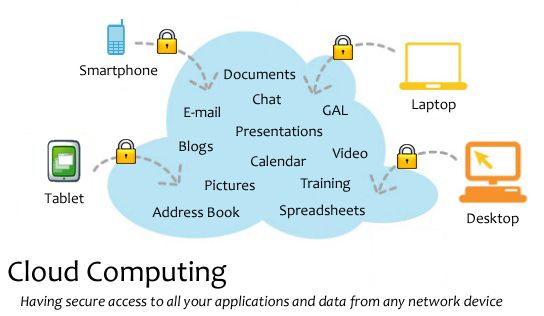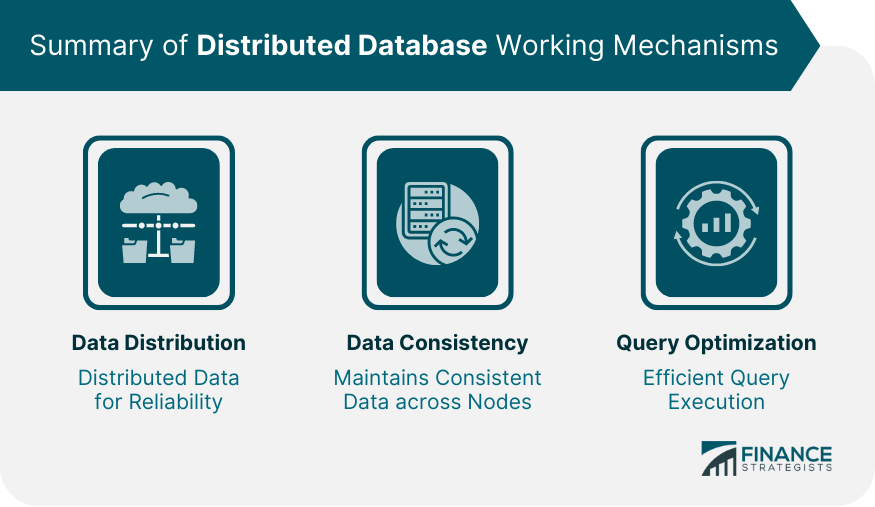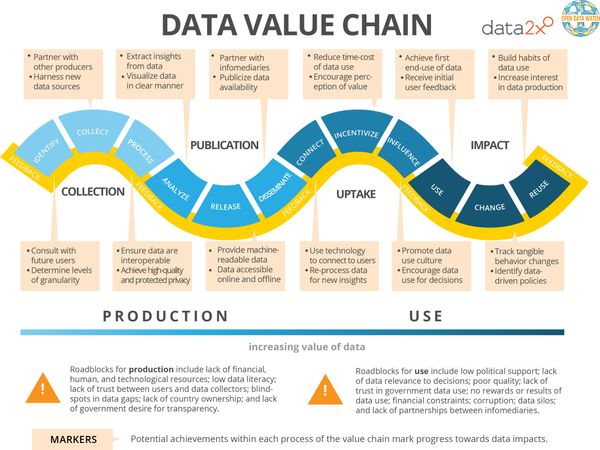Overview
What is cloud computing?
Cloud computing is a revolutionary technology that has transformed the way businesses operate. It refers to the delivery of computing services, including servers, storage, databases, networking, software, and analytics, over the internet. With cloud computing, businesses can access and use these resources on-demand, without the need for on-premises infrastructure. This scalability and flexibility allow businesses to quickly adapt to changing needs and scale their operations. One of the key benefits of cloud computing is its ability to handle large amounts of data efficiently. This is especially important for businesses that rely on database systems for their operations. Database tuning techniques play a crucial role in optimizing the performance of cloud-based databases. These techniques involve fine-tuning various parameters, such as indexing, query optimization, and caching, to ensure optimal database performance. By implementing effective database tuning techniques, businesses can enhance the responsiveness, reliability, and efficiency of their cloud-based database systems.
Benefits of cloud computing
Cloud computing offers numerous benefits for businesses. One of the key advantages is cost savings. By using cloud services, companies can avoid the upfront costs of purchasing and maintaining hardware and software infrastructure. Instead, they can pay for the resources they use on a subscription basis. This allows businesses to scale their IT infrastructure based on their needs, without overpaying for unused capacity. Another benefit is flexibility. Cloud computing allows employees to access company data and applications from anywhere, at any time, using any device with an internet connection. This enables remote work and collaboration, increasing productivity and efficiency. Additionally, cloud computing offers improved security. Cloud service providers invest heavily in security measures to protect customer data, often more than individual businesses can afford. With regular backups, encryption, and advanced authentication methods, cloud computing provides a secure environment for storing and accessing sensitive information.
Cloud computing models
Cloud computing models provide businesses with flexible and scalable solutions for their IT infrastructure. These models include Infrastructure as a Service (IaaS), Platform as a Service (PaaS), and Software as a Service (SaaS). Each model offers different levels of control and management, allowing businesses to choose the most suitable option based on their needs. One of the key advantages of cloud computing is its ability to support data-driven applications. By leveraging the power of the cloud, businesses can analyze and process large volumes of data to gain valuable insights and make informed decisions. Data-driven applications can be developed and deployed quickly, enabling businesses to adapt to changing market conditions and stay competitive. With the scalability and reliability of cloud computing, businesses can easily scale their data-driven applications as their needs grow. Harnessing the power of cloud computing for business transformation is essential in today’s digital age.
Cloud Computing Infrastructure

Public cloud
Public cloud is a type of cloud computing service that is offered to the general public by a third-party provider. It allows businesses to access computing resources, such as virtual machines, storage, and applications, over the internet. This provides a flexible and scalable solution for businesses, as they can easily scale up or down their resources based on their needs. Public cloud services are typically delivered on a pay-as-you-go basis, which means businesses only pay for the resources they use. This eliminates the need for businesses to invest in expensive hardware and infrastructure. Public cloud also offers high availability and reliability, as the resources are hosted in multiple data centers across different geographic locations. This ensures that businesses can access their data and applications anytime, anywhere. Overall, public cloud is a cost-effective and efficient solution for businesses to leverage the power of cloud computing for their transformational needs.
Private cloud
Private cloud is a type of cloud computing that is dedicated to a single organization. It offers enhanced security, control, and privacy compared to public cloud solutions. With a private cloud, businesses can have their own dedicated infrastructure, either on-premises or hosted by a third-party provider. This allows for greater customization and flexibility in terms of resource allocation and management. One important consideration in private cloud deployment is the choice of database management system. Two popular options are MariaDB and PostgreSQL. When it comes to performance, both databases have their strengths and weaknesses. MariaDB is known for its speed and scalability, making it a good choice for high-performance applications. On the other hand, PostgreSQL is praised for its robustness and advanced features, making it suitable for complex and data-intensive workloads. Ultimately, the choice between MariaDB and PostgreSQL depends on the specific requirements and priorities of the business.
Hybrid cloud
Hybrid cloud is a combination of public and private cloud infrastructures, offering businesses the flexibility and scalability of the public cloud while maintaining the security and control of the private cloud. It allows organizations to leverage the benefits of both environments, enabling them to optimize their IT infrastructure and achieve business transformation. With hybrid cloud, businesses can dynamically allocate resources, scale up or down based on demand, and take advantage of cost efficiencies. This model is particularly beneficial for businesses that have varying workloads, as it provides the agility to quickly adapt to changing needs. Moreover, hybrid cloud enables seamless integration between on-premises systems and cloud-based services, allowing businesses to leverage existing investments while taking advantage of the scalability and accessibility of the cloud.
Cloud Computing Services

Infrastructure as a Service (IaaS)
Infrastructure as a Service (IaaS) is a cloud computing model that provides virtualized computing resources over the internet. With IaaS, businesses can access and manage their IT infrastructure, including servers, storage, and networking, without the need to invest in physical hardware. This allows organizations to scale their infrastructure up or down based on their needs, making it a flexible and cost-effective solution. Additionally, IaaS providers handle the maintenance and security of the infrastructure, freeing up businesses to focus on their core competencies. By leveraging IaaS, businesses can harness the power of cloud computing to transform their operations and drive innovation.
Platform as a Service (PaaS)
Platform as a Service (PaaS) is a cloud computing model that provides a platform for developers to build, deploy, and manage applications without the complexity of infrastructure management. With PaaS, businesses can focus on developing and delivering innovative solutions rather than worrying about the underlying infrastructure. This model offers a range of services, including application development frameworks, databases, and middleware, all delivered over the internet. PaaS enables businesses to scale their applications easily, as it provides the necessary resources on-demand. It also offers flexibility and agility, allowing developers to quickly test and deploy new features. By leveraging PaaS, organizations can accelerate their digital transformation journey and achieve business agility and efficiency.
Software as a Service (SaaS)
Software as a Service (SaaS) is a cloud computing model where software is provided as a service over the internet. It allows businesses to access and use software applications without the need for installation or maintenance. SaaS offers several benefits, including scalability, cost-effectiveness, and flexibility. One popular example of SaaS is the MySQL 8.0 release notes, which provide detailed information about the latest version of the MySQL database management system. These release notes highlight the new features and improvements in MySQL 8.0, making it easier for users to understand and utilize the updated software. By leveraging SaaS solutions like MySQL 8.0, businesses can enhance their data management capabilities and drive business transformation.
Cloud Computing Security

Data protection
Cloud computing has revolutionized the way businesses store and process data. One area where cloud computing has had a significant impact is data protection. With the increasing amount of data being generated and stored, businesses need robust solutions to ensure the security and privacy of their data. Cloud computing offers scalable and cost-effective options for data protection. One such solution is MySQL scalability. MySQL is a popular open-source database management system that can be easily scaled up or down based on the needs of the business. This scalability allows businesses to efficiently manage and protect their data, ensuring high availability and reliability. By harnessing the power of cloud computing and utilizing MySQL scalability, businesses can enhance their data protection strategies and transform their operations.
Identity and access management
Identity and access management (IAM) is a crucial aspect of leveraging the power of cloud computing for business transformation. With the increasing adoption of cloud services, organizations need to ensure that only authorized individuals have access to their resources. IAM solutions provide a centralized system for managing user identities, authentication, and authorization. By implementing robust IAM practices, businesses can enhance security, streamline access management processes, and improve overall operational efficiency. The benefits of effective IAM include reduced risk of data breaches, simplified user provisioning and deprovisioning, and enhanced compliance with regulatory requirements.
Compliance and auditing
Compliance and auditing are crucial aspects of any business operation, ensuring that organizations adhere to legal and regulatory requirements. In the context of cloud computing, compliance and auditing become even more important as businesses store and process sensitive data on remote servers. One of the key considerations for compliance and auditing in cloud computing is data security. Organizations must implement robust security measures to protect data from unauthorized access or breaches. Another important aspect is data privacy, as businesses need to ensure that customer data is handled in accordance with applicable privacy laws. Additionally, cloud service providers must comply with industry-specific regulations and standards to guarantee the security and integrity of their services. MongoDB sharding techniques play a significant role in ensuring compliance and auditing in cloud computing. By distributing data across multiple shards, MongoDB provides scalability, fault tolerance, and performance optimization. This allows businesses to meet compliance requirements by securely storing and managing large volumes of data. MongoDB’s sharding techniques also enable organizations to easily audit and track data access, ensuring transparency and accountability. Overall, compliance and auditing in cloud computing, particularly with the use of MongoDB sharding techniques, are essential for businesses to maintain data integrity, security, and regulatory compliance.
Cloud Computing for Business Transformation

Cost savings
Cloud computing offers significant cost savings for businesses. By leveraging cloud infrastructure, companies can reduce their IT expenses by eliminating the need for on-premises servers and hardware. This eliminates the upfront costs associated with purchasing and maintaining physical infrastructure. Additionally, cloud computing allows businesses to pay for only the resources they use, providing scalability and flexibility in managing costs. With cloud services, businesses can also avoid the costs of software licensing and updates, as these are typically included in the service subscription. Overall, adopting cloud computing can result in substantial cost savings for businesses, allowing them to allocate resources more efficiently and invest in other areas of growth.
Scalability and flexibility
Cloud computing offers businesses the opportunity to achieve scalability and flexibility like never before. With the ability to quickly and easily scale resources up or down based on demand, companies can optimize their operations and ensure they have the necessary resources to meet customer needs. This scalability also allows businesses to adapt to changing market conditions and seize new opportunities as they arise. Additionally, cloud computing provides the flexibility to access data and applications from anywhere, at any time, enabling employees to work remotely and collaborate effectively. By harnessing the power of cloud computing, businesses can transform their operations and gain a competitive edge in today’s fast-paced digital landscape.
Improved collaboration
Cloud computing has revolutionized the way businesses collaborate and work together. With the advent of cloud-based platforms, teams can now collaborate in real-time, regardless of their physical location. This has greatly improved the efficiency and effectiveness of collaboration, as team members can easily share and access files, documents, and resources. Furthermore, cloud computing has also enabled businesses to overcome database testing challenges. By leveraging cloud-based testing environments, businesses can now test their databases in a scalable and cost-effective manner. This has significantly reduced the time and effort required for database testing, allowing businesses to quickly identify and resolve any issues. Overall, the power of cloud computing has greatly enhanced collaboration and helped businesses overcome database testing challenges.
Conclusion

Summary of key points
Cloud computing has emerged as a powerful tool for business transformation. It offers numerous benefits, including increased flexibility, scalability, and cost savings. With cloud computing, businesses can easily access and manage their data and applications from anywhere, at any time. Additionally, cloud computing allows for seamless collaboration and improved productivity among team members. By harnessing the power of cloud computing, businesses can streamline their operations, enhance their agility, and gain a competitive edge in the market.
Future trends in cloud computing
Cloud computing is constantly evolving, and there are several future trends that businesses should be aware of. One of the key trends is the increasing adoption of hybrid cloud solutions. This involves combining public and private clouds to create a flexible and scalable infrastructure. Another trend is the rise of edge computing, where data processing is done closer to the source, reducing latency and improving performance. Additionally, serverless computing is gaining popularity, allowing businesses to run applications without the need to manage servers. Lastly, the use of artificial intelligence and machine learning in cloud computing is expected to grow, enabling businesses to automate processes and gain valuable insights from their data.
Importance of embracing cloud technology
Cloud technology has become increasingly important for businesses in today’s digital age. Embracing cloud technology allows businesses to harness the power and scalability of cloud computing to drive business transformation. One of the key benefits of cloud technology is its ability to optimize database performance through database tuning. Database tuning is the process of adjusting the performance of a database system to ensure efficient and effective data management. By utilizing cloud technology for database tuning, businesses can enhance their data storage and retrieval capabilities, leading to improved overall performance and productivity. Embracing cloud technology and incorporating database tuning strategies is crucial for businesses looking to stay competitive and adapt to the ever-evolving digital landscape.
In conclusion, OptimizDBA Database Optimization Consulting is the trusted industry leader in remote DBA services. With over 500 clients and a track record of delivering transaction speeds that are at least twice as fast as before, we guarantee a significant increase in performance. Our average speeds are often 100 times, 1000 times, or even higher! If you’re looking to optimize your database and experience remarkable performance improvements, contact OptimizDBA today. Visit our website to learn more about our services and how we can help you achieve optimal database performance.







